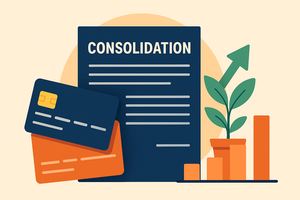Slip and Fall Settlements Without Surgery in Georgia
You’ve slipped on someone else’s turf—maybe a grocery store, a rental property hallway, or a cracked sidewalk—and luckily, there’s no surgery required. But even without that major operation, pain, medical bills, and stress can weigh heavily on your life.
If you're in Georgia, understanding how settlements work in such cases can feel confusing. This article breaks down everything you need—legal rules, the numbers, deadlines, and practical steps—to help you navigate slip-and-fall settlements without surgery in the Peach State. Think of this as your human-friendly guide, mixing short, punchy sentences with longer explanations, and focusing on solutions so you can move forward.
Understanding Premises Liability in Georgia (Invitees & Duties)
Under Georgia law, a slip-and-fall claim is rooted in premises liability. As an invitee (like a shopper or visitor), the property owner must take reasonable steps to keep you safe. That means spotting hazards—wet floors, loose tiles, debris—and doing something about them (cleaning, warning signs, repairs). If they fail at that, you may have grounds for a settlement even without surgery. Realistic cases with minor injuries still carry value—your pain, medical bills, missed work days. Understanding that legal duty is your first step toward getting what’s fair.
Modified Comparative Negligence: Your Own Fault Counts
Georgia follows modified comparative negligence with a 50% bar. That means if you're found 49% or less at fault, you can recover—but the settlement is reduced by your share. Example: $10,000 award minus 20% fault gives you $8,000. If you’re 50% or more responsible, you get nothing. So even when no surgery is involved, the value of your claim depends heavily on how much blame the other side can shift onto you. Gathering evidence—photos, eyewitness accounts, surveillance—can keep your fault percentage as low as possible.
What’s the Typical Settlement Range Without Surgery?
Even without surgery, settlement amounts vary widely. In Georgia, minor injuries like sprains or soft tissue issues often settle from $10,000 to $50,000, depending on evidence and how insurers judge your pain, recovery time, and fault. For shoulder injuries without surgery, the range is typically $10,000 to $50,000. Back injuries without surgery can land between $20,000 and $100,000. Another firm’s calculator estimates Georgia slip-and-fall settlements overall between $20,000 and $300,000, though serious injury cases with surgeries skew higher. So if you're choosing not to—or didn’t need to—have surgery, you still stand a good shot depending on your situation.
Breaking Down Settlement Components (Without Surgery)
Even when surgery is off the table, several key elements weigh into the total:
-
Medical Expenses – ER visits, imaging, physical therapy.
-
Lost Wages – Time spent recovering at home or missing work.
-
Future Medical Costs – Ongoing treatments or therapy.
-
Pain and Suffering – Emotional and physical discomfort from the fall.
-
Property Damage – Damaged glasses, phone, or clothing.
These categories help determine how much your claim is worth. The stronger your documentation, the more persuasive your case.
Medical Expenses – Documentation Makes or Breaks It
Without surgery, your medical bills may still include ER visits, X‑rays, PT sessions, even chiropractic visits. Always keep receipts, records, itemized bills—they’re your best evidence. Insurers want proof. If you've already paid, or even just got the paperwork, trail that to show your investment in recovery. Without surgery, this documentation becomes even more critical to justify your claim.
Lost Wages – Showing Real Impact
Even a mild sprained ankle can cost you days or weeks out of work—perhaps a day here, a shift missed there. Multiply that by your hourly rate or salary, and you’ve got an economic loss. Use pay stubs, employer statements, or time-off records. Future lost wages might apply if the injury lingers beyond immediate recovery, like missing opportunities or overtime. Again, detail and proof are your friends.
Pain and Suffering – Multiply the Numbers
Georgia often uses a multiplier method: multiply your economic damages by 1.5 to 5 based on severity. Even without surgery, if your recovery is painful or impairs daily life, have your doctor note it. A 2x–3x multiplier isn’t out of reach. That could turn $5,000 worth of medical bills and lost wages into $15,000 or more. Some law firms even offer calculators to estimate this—just be cautious and realistic.
Deadlines You Can’t Ignore – Statutes & Ante Litem Notices
Timing is critical. Georgia gives you two years from the date of injury to file a personal injury lawsuit. But if the slip occurred on city property (like a sidewalk or public park), you must first file an ante litem notice within six months. For county or state incidents, that window is 12 months. Miss it, and you’re out—no settlement, no lawsuit. So even if there's no surgery, legal processes—and deadlines—still apply.
Realistic Example: Sprained Ankle at a Grocery Store
Imagine you slipped on a puddle inside a supermarket. You visited a walk-in clinic, got diagnosed with a sprained ankle, and went through a week of physical therapy. No surgery. You missed two days of work. Here’s how your numbers may look:
-
Medical: $1,200
-
PT sessions: $800
-
Lost wages (2 days): $400
-
Pain & suffering (2x multiplier): $2,800 total ×2 = $5,600
Subtotal: approximately $5,600. If the property owner’s insurer assigns you 20% fault (wearing slippery shoes?), that drops it to around $4,480. This example shows how settlement without surgery can still matter—every dollar counts.
Steps to Maximize Your Settlement, No Surgery Required
-
Document everything – photos of hazard, medical records, doctor’s notes.
-
Record missed wages – keep pay stubs, workplace notes.
-
Track your recovery – log pain levels, physical limits.
-
Identify contributing factors – poor lighting, no warning signs? Note them.
-
File notices early – especially if there was government liability.
-
Use a calculator – like the ones law firms offer to estimate value.
-
Consult an attorney – even a free consult can help clarify your rights and options.
Why You Still Need a Lawyer (Even for Non-Surgical Cases)
Minor claims sometimes feel like DIY jobs—but insurers don’t see it that way. They still wiggle, assign fault, or lowball settlements. A lawyer helps:
-
Keep your fault percentage low
-
Push back on insurer’s discounts
-
Navigate legal deadlines and notice rules
-
Package your claim professional-style with a demand letter
For a claim without surgery, a lawyer can often boost your settlement by emphasizing your pain, recovery timeline, and documentation—even if medical costs are modest.
The Role of Assumption of Risk
Georgia recognizes “assumption of the risk”—if you knowingly accepted danger, it may reduce your settlement. That doesn’t automatically bar you—just affects your fault share. For instance, ignoring “wet floor” signs or walking in flip-flops through a puddle could reduce your recovery. To counter this, always follow warning signs or avoid obviously risky behavior—but if you slipped due to someone else’s negligence, don’t let a sign excuse them entirely.
Punitive Damages – Rare but Possible
In slip-and-fall cases without surgery, punitive damages are rare—reserved for gross negligence or reckless behavior (like ignoring major hazards for profit’s sake). Georgia law requires clear and convincing evidence for punitive awards. Still, if a property owner repeatedly ignored known risks, punitive damages might be on the table—but that’s the exception, not the rule.
Sample Timeline for a Non-Surgical Slip-and-Fall Claim
-
Day 0 – Fall occurs; seek treatment.
-
Week 1 – Begin PT or recovery; start documenting.
-
Month 1–2 – Gather medical bills, lost wages, photos, evidence.
-
Month 3–5 – File ante litem notice (if government involved).
-
By Month 6 – Package demand letter or consult lawyer.
-
Month 6–12 – Settlement negotiations; reviewing insurer’s offers.
-
By Year 1.5–2 – File lawsuit if no deal; suits must be filed within two years.
Starting early is your best strategy—even without surgery, time is ticking from Day One.
SEO-Friendly Keywords & Phrases to Keep You Found
To make sure your article reaches those who need it, here are SEO-friendly terms you can use naturally:
-
“Georgia slip and fall settlement without surgery”
-
“Non-surgical slip and fall claim Georgia”
-
“Georgia premises liability minor injury settlement”
-
“How much is a slip and fall case worth in Georgia without surgery”
-
“Slip fall sprain settlement Georgia”
Using these in headings, alt text, intro, and conclusion helps search engines connect your article to searchers, without forced repetition. Keep it natural and helpful—that’s SEO gold.
Quick Recap: What You Need to Know
-
No surgery? Still valuable. Minor injuries can net thousands.
-
Georgia’s 50% bar applies. Even if partially at fault, you might still recover reduced damages.
-
Document everything. Evidence is your leverage.
-
Meet deadlines. Two years to file, six months for city ante litem, 12 for county/state.
-
Legal help helps. Especially in low-cost claims, a lawyer can elevate results.
-
Punitive damages are rare. But they’re a possibility in extreme negligence.
Conclusion
Falling down without needing surgery doesn’t mean your claim is worthless—it just requires a smart approach. Georgia law still protects your right to recover damages for medical expenses, lost wages, pain, and suffering. What matters is how you gather evidence, minimize your fault, follow critical deadlines, and present your case with clarity. Use realistic estimates, stay organized, and don’t shy away from legal advice. With preparation, even non-surgical slip-and-fall cases can be resolved fairly—and sometimes quite generously. You deserve that peace of mind.













